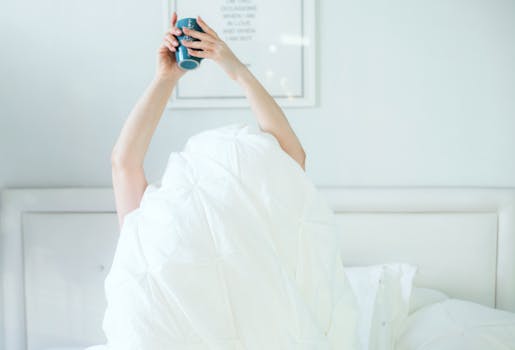
Creating a Balanced Sleep Routine for Better Rest
Creating a balanced sleep routine is essential for our overall health and well-being. A good sleep routine can help us feel rested, refreshed, and ready to take on the day. In this article, we will explore the importance of a balanced sleep routine and provide tips on how to create one that works for you.
What is a Balanced Sleep Routine?
A balanced sleep routine is a consistent sleep schedule that allows our body to get the rest it needs to function properly. It involves going to bed and waking up at the same time every day, including weekends, and establishing a relaxing bedtime routine to signal to our body that it’s time to sleep. A balanced sleep routine can help regulate our body’s internal clock, improve the quality of our sleep, and increase our energy levels.
Why is a Balanced Sleep Routine Important?
A balanced sleep routine is important for our physical and mental health. Sleep plays a critical role in our body’s ability to repair and regenerate cells, build bone and muscle, and strengthen our immune system. During sleep, our body also processes and consolidates memories, and regulates our emotions and mood. Without a balanced sleep routine, we may experience fatigue, irritability, and difficulty concentrating, which can negatively impact our daily lives.
How to Create a Balanced Sleep Routine
Creating a balanced sleep routine is easier than you think. Here are some tips to help you get started:
- Set a consistent sleep schedule: Go to bed and wake up at the same time every day, including weekends.
- Establish a relaxing bedtime routine: Develop a calming pre-sleep routine, such as reading a book, taking a warm bath, or practicing gentle stretches.
- Create a sleep-conducive environment: Make your bedroom a sleep haven by ensuring it is dark, quiet, and cool.
- Avoid stimulating activities before bedtime: Avoid activities that can interfere with your sleep, such as watching TV, using electronic devices, or engaging in intense conversations.
- Get morning sunlight: Exposure to natural light in the morning helps regulate our circadian rhythms and improves our mood.
Tips for a Better Night’s Sleep
In addition to creating a balanced sleep routine, here are some tips to help you get a better night’s sleep:
- Avoid caffeine and nicotine: Both can disrupt sleep patterns and make it difficult to fall asleep.
- Limit alcohol consumption: While alcohol may help you fall asleep faster, it can disrupt sleep patterns and reduce the quality of your sleep.
- Try relaxation techniques: Techniques such as deep breathing, progressive muscle relaxation, and mindfulness meditation can help calm your mind and body before sleep.
- Get regular exercise: Regular physical activity can help improve sleep quality, but avoid vigorous exercise within a few hours of bedtime.
Conclusion
Creating a balanced sleep routine is essential for our overall health and well-being. By establishing a consistent sleep schedule, developing a relaxing bedtime routine, and creating a sleep-conducive environment, we can improve the quality of our sleep and wake up feeling rested, refreshed, and ready to take on the day. Remember to avoid stimulating activities before bedtime, get morning sunlight, and try relaxation techniques to help you get a better night’s sleep.





